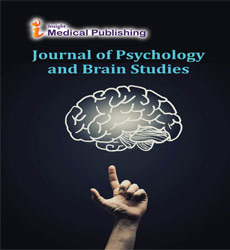Book Review ÃÆâÃâââ¬ÃâÃÅDi Balik 7 Hari Besar IslamÃÆâÃâââ¬Ãââ⢠(Indonesian Version)
History Programme, Faculty of Social Sciences and Humanities, National University of Malaysia, UKM-43650, Bangi Selangor, Malaysia
- Corresponding Author:
- Uqbah Iqbal
Researcher, History Programme
Faculty of Social Sciences and Humanities
National University of Malaysia
UKM-43650, Bangi Selangor, Malaysia
Tel: +60389215555
E-mail: uqbah@siswa.ukm.edu.my
Received Date: August 25, 2017; Accepted Date: September 04, 2017; Published Date: September 08, 2017
Citation: Iqbal U (2017) Book Review ‘Di Balik 7 Hari Besar Islam’ (Indonesian Version). J Psychol Brain Stud. Vol. 1 No. 2: 10.
Copyright: © 2017 Iqbal U. This is an open-access article distributed under the terms of the Creative Commons Attribution License, which permits unrestricted use, distribution, and reproduction in any medium, provided the original author and source are credited.
Opinion
Written by KH. Muhammad Sholikhin, the big days of Islam are included in the festive days of much celebrated by Indonesian Muslims. Even then, in Indonesia where the majority of people are Moslems, these days are included as national holidays. At least the big day of Islam which is included in the context of national holiday is: New Year Hijriyah (1 Muharram), day of Prophet Muhammad SAW (12 early Rabi'ul), day of Isra 'Mi'raj Prophet Muhammad (27 Rajab), Nuzulul Qur 'An (21 Ramadan),' Idul Fitri (1-2 Shawwal), 'Eid al-Adha (10 Dhul-Hijjah) and Lailatul Qadar. Because of the routine activities of the commemoration and celebration of Islamic holidays, so many parties, whether officials, religious institutions, mosques or community groups many who form the committee Celebration of the Great Day of Islam (PHBI) in particular. The problem is, most of our societies have not or have not paid attention to why the big days are to be remembered? What is the lesson in the event of the big day? And how to follow-up the commemoration of religious festivities into the form of daily action? Whether it's deeds related to morals and morality, religious, social, political and cultural. Departure from the sense of concern, then the writer moved to present this book.
The author tries to decipher the fabric of events that causes the day to enter in the region of Islamic holidays, and describes the various aspects of the lesson that we can learn. Moreover, the authors also provide various amalia alternative applications that we can do, so that each time it commemorates a big religious day, we expect the improvement of the quality of life, religion and society from ourselves. The author hopes the presence of this book brings enough benefits for all of us, both in terms of world life and in terms of life in the hereafter. The concept of rahmatan lil 'alamin in da'wah is not separated from the dogmatic of the creation of the tribe, nation and language of the different languages to each other ta'aruf. The axis of this concept is none other than the guarding of monotheism. Precisely because of this vision of rahmatan lil 'alamin, then da'wah became an important tool for Islam, to declare itself to humanity.
From the guarding of monotheism is then da'wah to aim to make religion as rahmatan li al'alamin. This is a cosmological concept that leads to human consciousness, that man is on the internal scale of his own community indeed as `abidullah, but more broadly than that, man is created in this world as the direct Khalifah of Allah or as the human being of God's khalifah. So the fact of Islam is not only measured in terms of actuality of humanity alone, but also need another measurement that is the ability of human beings to create conditions of universal Islamic (do ihsan). For this nature was created by God in his position as a Muslim, in which everything in it "yields to the will of God." But what is noteworthy is, that the concept of Islam as the grace of the universe is actually more referring to the apostolic mission of the Prophet Muhammad, "wamaa arsalnaka illa rahmatan li al- 'alamin". So to understand this concept perfectly and intact, it is necessary to understand in relation to the prophetic and trisalaqh context of the Prophet Muhammad. This is the point of emphasis on this paper.
Open Access Journals
- Aquaculture & Veterinary Science
- Chemistry & Chemical Sciences
- Clinical Sciences
- Engineering
- General Science
- Genetics & Molecular Biology
- Health Care & Nursing
- Immunology & Microbiology
- Materials Science
- Mathematics & Physics
- Medical Sciences
- Neurology & Psychiatry
- Oncology & Cancer Science
- Pharmaceutical Sciences
